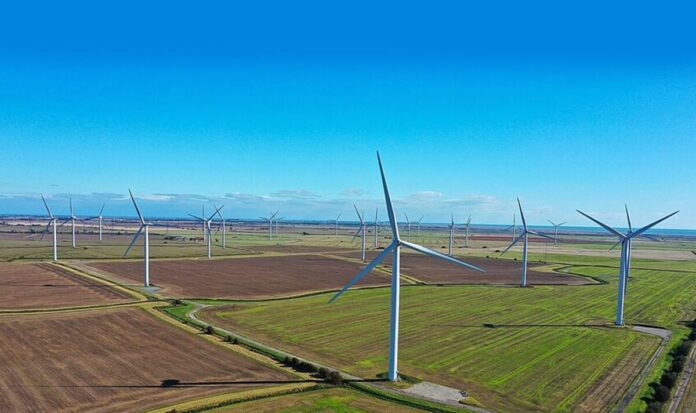Ministers relaxed rules around the approval process for onshore wind projects in England (Image: Getty) The Government streamlined planning rules and broadened the ways that suitable locations can be identified yesterday after pressure from backbench Tory MPs. Michael Gove, the Secretary of State for Levelling Up, Housing and Communities, said: ‘To increase our energy security and develop a cleaner, greener economy, we are introducing new measures to allow local communities to back onshore wind power projects.’ It will only apply in areas where developments have community support but will build on our ‘enormous success’ as a global leader in offshore wind and will help on our journey to Net Zero. ‘I would object to wind farms being imposed on communities’, says Tory MP John Hayes (Image: Getty) Sir Alok Sharma, the former COP26 president, led Tory backbench pressure over the issue and wanted to see rules allowing a single objection to block development be changed. The measures will take immediate effect and will lead councils to consider views from the whole community when considering a planning application. Communities can therefore apply to their local council to have onshore wind built, but the final decision is still made by councillors. MP Sir John Hayes expressed concern about any move to overturn the de facto ban on onshore wind farms that would see turbines ‘imposed’ on local areas. He said: ‘I would object to wind turbines being imposed on communities and I don’t look forward to a watering down of the rules.’ Tory MP Chris Skidmore welcomed any move to relax the de facto ban (Image: Getty) Not lifting the ban meant just one turbine has been built this year, near Bristol. One is in the process of being installed near Leighton Buzzard, Bedfordshire. Tory MP Chris Skidmore welcomed any move to relax the de facto ban but warned that detail was needed and he wanted to see legislative change. He said several hundred new turbines may be needed every year but added communities should not be alarmed by this. Mr Skidmore added: ‘People don’t need to worry about wind farms being scattered across the country. It is not going to alarm people when they realise they [will] benefit from cheaper energy.’ Previous rules required councils to draw up plans showing all areas suitable for onshore wind development before farms could go ahead. Proposals were also blocked if just one person objected to them. Downing Street declined to say whether Rishi Sunak wanted to see more onshore wind farms built. The PM’s spokesman said: ‘We think it’s for local communities to decide rather than a top-down approach by government.’ Michael Gove and Rishi Sunak (Image: Getty) Downing Street declined to say whether Rishi Sunak wanted to see more onshore wind farms built as a result of the change. The Prime Minister’s official spokesman said: “From the Government’s perspective, we think it’s for local communities to decide rather than a top-down approach by government. “We have set out our path to achieving net zero. That is written in law and we have set out how we can achieve that through our carbon budgets. “The Government is investing heavily in offshore wind, nuclear, and other means to achieve that.”


